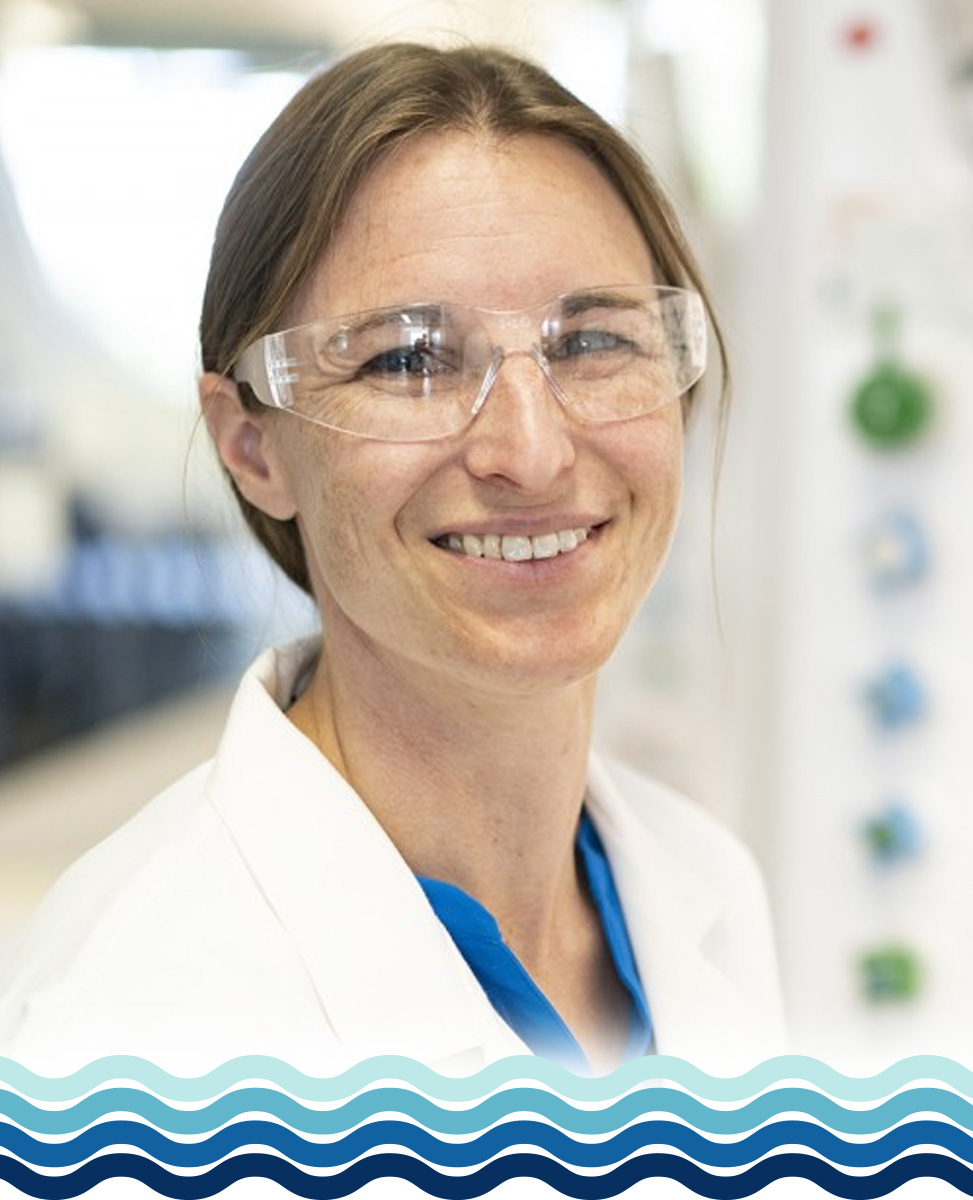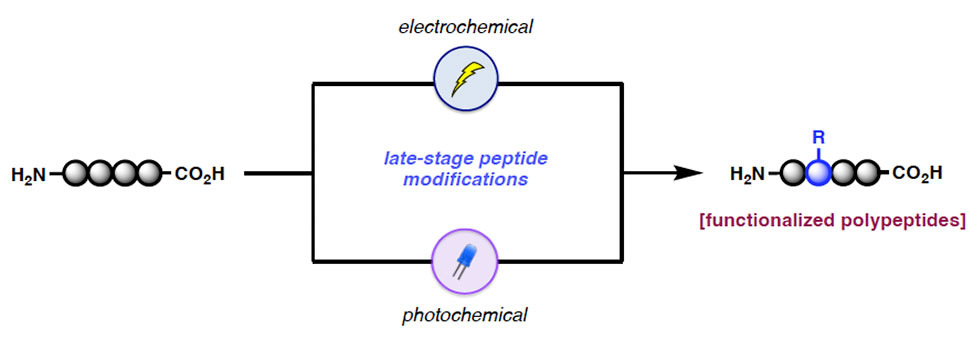Lara Malins
Professor
Australian National University
Talk Information
Peptide Synthesis and Innovation
16 June 2025, 02:25pm - 02:50pm, in the Pacific Jewel Ballroom
L14 – Advances in Late-Stage Peptide Modification Chemistry: Inspiration from Nature

Professor Lara Malins is a synthetic organic and medicinal chemist at the Australian National University's Research School of Chemistry. She leads a research team dedicated to developing chemical tools and technologies for the synthesis and optimization of next-generation peptide-based therapeutics.
Academic Background
Professor Malins earned her B.A. in Chemistry from Boston University in 2009. She pursued her Ph.D. at the University of Sydney under Professor Richard Payne, focusing on developing peptide ligation strategies. Following her doctoral studies, she conducted postdoctoral research at The Scripps Research Institute with Professor Phil Baran, where she developed synthetic methods for targeted peptide modification. She began her independent academic career at ANU in 2017 and currently holds a Snow Medical Research Fellowship.
Research Focus
Professor Malins' research centers on creating versatile synthetic tools for small molecule synthesis, protein bioconjugation, and the design of peptide-based therapeutics. Her work aims to expand the toolbox of practical methods and reagents for the direct modification of complex biomolecules, enhancing their therapeutic potential and understanding their role in biological processes.
Notable Contributions
Professor Malins has pioneered the development of electrochemical and photochemical approaches for late-stage peptide modification. Her innovative strategies have advanced the field of peptide science, particularly in synthesizing and optimizing structurally complex peptides for therapeutic applications. Her work has contributed to the development of new peptide-based antibiotics, antimalarials, and anticancer agents.
Awards and Honors
Professor Malins has received numerous accolades, including:
- Snow Medical Research Fellowship, 2022
- Royal Australian Chemical Institute's Rennie Medal, 2022
- American Peptide Society's Early Career Lectureship Award, 2023
- Australian Institute of Policy & Science Young Tall Poppy Award, 2019
- Westpac Research Fellowship, 2021
Professional Engagements
Beyond her research, Professor Malins is a Chief Investigator in the ARC Centre of Excellence for Innovations in Peptide and Protein Science. She is also an enthusiastic educator and STEM advocate, committed to mentoring the next generation of scientists and promoting equity in STEM fields.
Through her interdisciplinary approach and innovative research, Professor Lara Malins continues to make significant contributions to peptide science and medicinal chemistry.
Advances in Late-Stage Peptide Modification Chemistry: Inspiration from Nature
Research School of Chemistry, Australian National University, Canberra, Australia; ARC Centre of Excellence for Innovations in Peptide and Protein Science, Australian National University, Canberra, Australia
The development of new synthetic technologies for the precise modification of amino acids has been an enduring goal for peptide and protein chemists. Over the past decade, our growing understanding of the enormous array of structural and functional diversity incorporated into peptide natural products1,2 has provided new inspiration for the development of versatile chemical tools to both mimic and expand upon Nature’s repertoire of peptide modifications.

This talk will highlight our recent efforts toward the development of strategies for late-stage peptide modification for applications in the synthesis of valuable peptide natural products and therapeutic leads. Methods which specifically leverage the use of electrochemical3 and photochemical4 activation to accomplish the precise modification of peptide substrates will be discussed. Looking beyond the scope of the common proteinogenic amino acids, the modification of functional groups inspired by naturally occurring, albeit “non-canonical,” structural motifs will also be examined as a broader tool for fine-tuning peptide structure and function.
1. Montalbán-López M. et al. Nat. Prod. Rep. 2021, 38, 130–239.
2. Süssmuth R.D., Mainz A. Angew. Chem. Int. Ed. 2017, 56, 3770–3821.
3. Karipal Padinjare Veedu D., Connal L.A., Malins L.R. Angew. Chem. Int. Ed. 2023, 62, e202215470.
4. Hammond J.M., Gardiner M.G., Malins L.R. Org. Lett. 2023, 25, 3157–3162.

